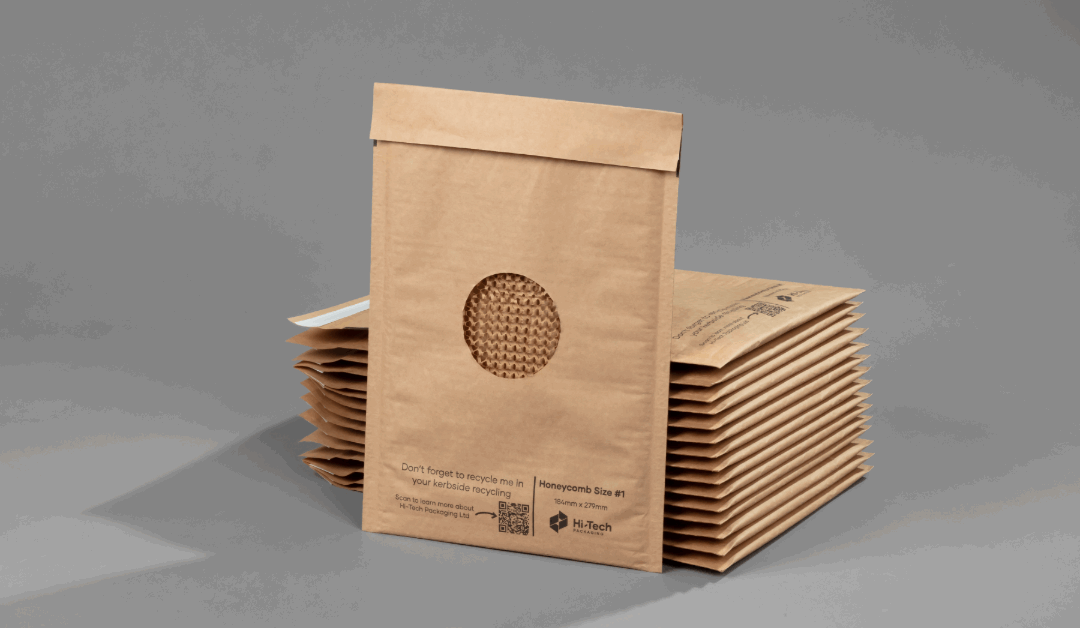Why Ditching Plastic Bags Is More Than a Trend
Let’s be real—plastic bags are everywhere. From your favourite boutique’s checkout counter to those familiar grey courier packages on your doorstep, plastic has become the go-to for convenience. But come July, especially during Plastic-Free July, we’re reminded of the environmental chaos plastic causes—clogged oceans, overflowing landfills, and microplastics sneaking into our food.
This global movement is your chance to take action, especially if you’re in retail or run an e-commerce biz. Switching to sustainable packaging isn’t just good for the planet—it’s great for your brand image, too.
So, if you’re ready to drop the plastic and pick up something greener, keep reading. We’ve rounded up 6 plastic bag alternatives that are practical, eco-friendly, and—yes—still stylish.
1. Compostable Mailer Bags
These babies look like plastic, feel like plastic, but are made from plant-based materials like corn starch and PLA (polylactic acid). They’re designed to break down in home or industrial composting setups.
Why They Rock:
- 100% compostable (in the right environment)
- Durable and waterproof
- Great for fashion, books, and accessories
Pro tip: Add a composting instruction card inside so customers know how to dispose of it properly.
2. Recycled Paper Bags
You’ve seen these in grocery stores, gift shops, and even fashion boutiques. Paper bags made from recycled paper are compostable, recyclable, and easy to customise with your logo.
Pros:
- Easily recyclable in most cities
- Comes in all shapes and sizes
- Low cost
Watch Out For:
- Not ideal for heavy or wet items
- May need reinforcement for shipping
3. Reusable Cotton or Canvas Bags
Perfect for retail! These cloth bags are designed to be used again and again—plus, they double as a free billboard for your brand.
Great For:
- In-store purchases
- Promotional giveaways
Upsides:
- Long-lasting = less waste
- Customisable with prints, embroidery, or dye
- Loved by eco-conscious customers
Did you know? A well-made cotton tote can replace over 700 plastic bags in its lifetime!
4. Corrugated Cardboard Mailers
Cardboard is sturdy, compostable, and fully recyclable. Mailers made from corrugated cardboard are a smart choice for e-commerce businesses that ship fragile or bulky items.
Perks:
- Protective for electronics, home goods, books
- Easy to brand with stickers or custom print
- Commonly accepted in recycling bins
Downside:
- Bulky and not flexible like poly mailers
- Slightly heavier (affects shipping cost)
5. Hemp or Jute Bags
Strong, natural, and way more sustainable than cotton, hemp and jute are rising stars in the reusable bag game. They give a rustic, earthy feel that’s on-brand for natural or handmade products.
Ideal For:
- Boutiques, markets, artisanal brands
- Eco-conscious event goodie bags
Sustainability Score:
- Requires less water and pesticides than cotton
- Long shelf life
6. Water-Soluble Bags (PVOH-based)
Say what? Yep, these futuristic bags actually dissolve in water. Made from a material called polyvinyl alcohol (PVOH), they’re safe, non-toxic, and leave zero residue.
Perfect For:
- Hygiene-focused products like cosmetics or meds
- Specialty use in extreme eco-settings
Bonus Points:
- No microplastics
- Dissolves in hot water
Just note: Not ideal for wet or damp climates unless well-sealed.
So, Which One’s Best for You?
It depends on your business and what you’re shipping. Here’s a quick cheat sheet:
|
Need |
Best Option |
|
Lightweight, low-cost |
Recycled paper bags |
|
Durability + compostability |
Compostable mailers |
|
High-end, stylish presentation |
Cotton, hemp, or jute bags |
|
Fragile shipping |
Corrugated cardboard mailers |
|
Innovative & unique branding |
Water-soluble bags |
Wrapping It All Up
Going plastic-free doesn’t mean sacrificing quality or aesthetics—it just means making more conscious choices. Whether you’re a small business owner, e-commerce seller, or simply someone looking to shop smarter, Plastic-Free July is your call to action.
Start small. Swap one bag type. Then keep going. The planet—and your customers—will thank you.
Additional Resources:

